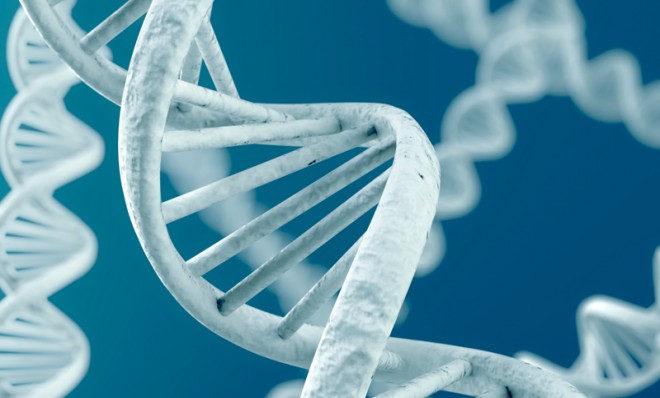Sorry, you can't patent your genes
The Supreme Court unanimously rules that "separating [a] gene from its surrounding genetic material is not an act of invention"

A free daily email with the biggest news stories of the day – and the best features from TheWeek.com
You are now subscribed
Your newsletter sign-up was successful
Guess we're not that special after all. The Supreme Court unanimously ruled on Thursday that human genes, including all their individual parts, are not eligible for patent protections under the law. SCOTUS's perfectly sound logic? You didn't invent your genetic material.
The case in question concerned Utah-based Myriad Genetics, which held an exclusive patent on an isolated pair of genes that can help predict a woman's risk for breast and ovarian cancers. (It's the same test Angelina Jolie took before opting for a preventive double mastectomy.) In the court's decision, Justice Clarence Thomas wrote, "Myriad did not create anything… To be sure, it found an important and useful gene, but separating that gene from its surrounding genetic material is not an act of invention."
Myriad had previously held a patent on two genes — BRCA 1 and BRCA 2 — which meant that the company held a firm grip over genetic cancer testing, making it exorbitantly expensive: Upwards of $3,000 in most cases. The Supreme Court's ruling, at least in theory, should open the door for competitors and therefore make testing more affordable.
The Week
Escape your echo chamber. Get the facts behind the news, plus analysis from multiple perspectives.

Sign up for The Week's Free Newsletters
From our morning news briefing to a weekly Good News Newsletter, get the best of The Week delivered directly to your inbox.
From our morning news briefing to a weekly Good News Newsletter, get the best of The Week delivered directly to your inbox.
There is one tiny catch. As Boing Boing notes, the ruling "does not apply to synthetically created DNA, which, based on the Myriad context, seems to apply to lab-created genes that are different from what happens in nature." Cloned genetic information could be patentable, in other words.
That said, the ruling "may alter the willingness of businesses to invest in the expensive work of isolating and understanding genetic material," reports the New York Times.
Nevertheless, women's health advocates are championing the high court's decision.
"The court struck down a major barrier to patient care and medical innovation," Sandra Park, senior staff attorney with the ACLU Women's Rights Project, tells USA Today. "Because of this ruling, patients will have greater access to genetic testing, and scientists can engage in research on these genes without fear of being sued."
A free daily email with the biggest news stories of the day – and the best features from TheWeek.com